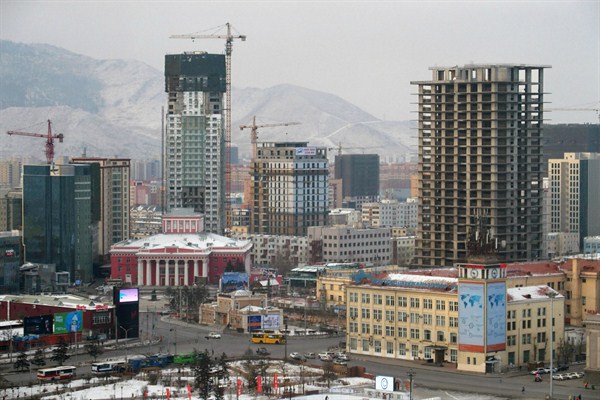When a country’s economy is doing poorly and voters are suffering, a government can expect to be voted out of office on election day. So Mongolia’s upcoming parliamentary elections June 29 could see a staggering defeat for the ruling Democratic Party (DP), which has led successive governments over the past four years. This is not lost on DP officials. Yet rather than offer a compelling vision for Mongolia’s future, their campaign strategy has focused on reconfiguring the entire election system, creating more problems in the process.
Two factors have combined to depress the Mongolian economy: world commodity prices and domestic political choices. No mining economy has been spared the impact of the global slump in commodity prices that is linked to a slowing down of the Chinese economy. Given Mongolia’s dependency on China’s purchases, this downturn has been particularly acute.
Worse, over the past several years, it was primarily new coal deposits that were set to be exploited, just as coal declined in significance on the back of measures to deal with climate change. Mongolia, like every other resource economy, might have prepared more diligently for this downturn. Yet decisions by the Mongolian government, both under the leadership of the DP and under its predecessors, have significantly worsened the economic impact.

